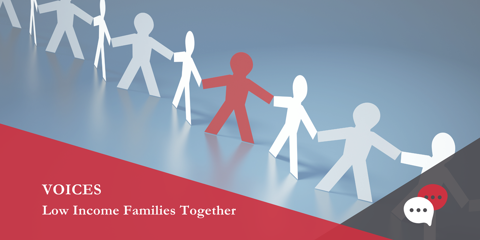"Poverty is our highest reason for referral to LIFT, both in work poverty and food poverty. We have seen a huge increase in referrals to us for in-work poverty support, to help families sustain employment and help with crippling household bills."
What is your organisation working to achieve?
We had hoped after the pandemic, we would be focussing on prevention work but sadly due to the increase in the cost-of-living, we are seeing a huge increase in the referrals for crisis work. LIFT has set out to show our model of working, “The Whole Family Support Model of working using the Key working approach” as a way of working. During the pandemic, we had to change our delivery service to provide emergency food and support in a whole new way. We are achieving the support and advocacy service we set out to, but now adding crises and in-work poverty to our service delivery. We want to help families set out their own journey and we will follow them on their path to reach their own personal goals and ambitions.
Where are you focusing your support right now?
Supporting families to meet the huge increase in the cost of living and helping families to budget their finances. We have had to focus our support on helping families with their mental well-being. The impact poverty, whether it's in-work poverty or food poverty is having on people’s mental health is catastrophic.
How do poverty and trauma figure in your work?
Poverty is our highest reason for referral to LIFT, both in work poverty and food poverty. We have seen a huge increase in referrals to us for in-work poverty support, to help families sustain employment and help with crippling household bills.
How can funders support your work?
Longer-term funding, 1 or 2 years is just not enough. The time scale for engaging with a family, building their trust, reducing barriers to employment, and setting achievable goals for their own journey to reach their full potential can take years, one year is just not enough time.
What changes would you like to see in your area of focus during the next five years?
More funding put into smaller, voluntary charities like LIFT. We work on the ground. We see firsthand the poverty and the impact this has on mental health and the fear on families faces when they can't buy food or turn their power on, or not knowing where their next meal will come from. Funding needs to be put into communities and into children's services.
What long-term system changes would best address the issues?
I believe that working in a Whole Family support approach can be extremely beneficial to all families. These systematic changes to service delivery for statutory services would need to come from the Scottish Government, the City Of Edinburgh Council, and the UK Government by allowing new service deliveries and models to be explored within statutory services. Service delivery within statutory services is not working so it's time for a change.
How Low Income Families Together (LIFT) fits with our 2020-2030 strategy
Under our Emotional Wellbeing and Relationships theme, our aim is to drive change in Scotland by building a stronger understanding of the damaging effects caused by poverty and trauma, particularly among children, young people, and their families.
LIFTs approach is both relational and community-led - their support is designed with the community at the heart of it. We know that positive relationships can provide a powerful protection against poverty and trauma and that is why their work is closely aligned to our strategy.
We are delighted to be supporting the work of LIFT and look forward to seeing their progress in the coming years.
Lorna Wallace, Funding Officer

